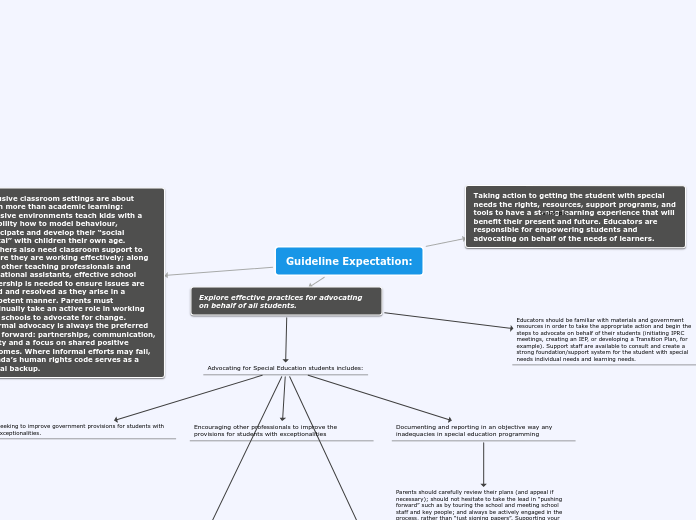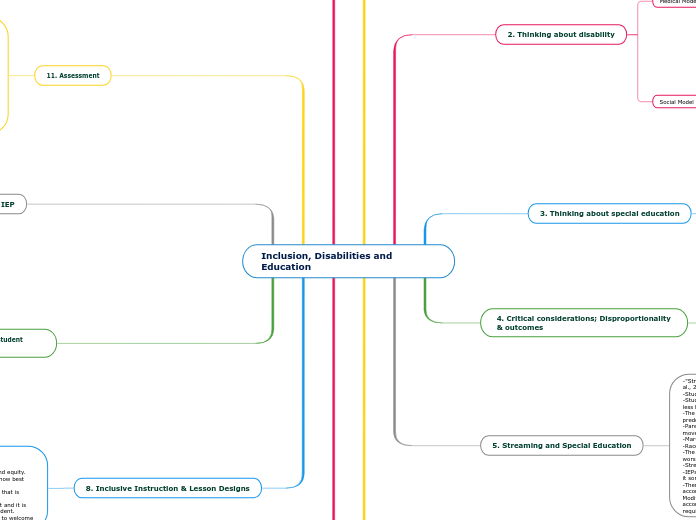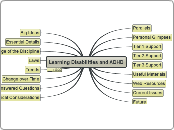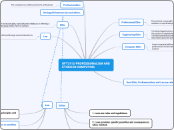Guideline Expectation:
Taking action to getting the student with special needs the rights, resources, support programs, and tools to have a strong learning experience that will benefit their present and future. Educators are responsible for empowering students and advocating on behalf of the needs of learners.
Subtopic
Inclusive classroom settings are about much more than academic learning: inclusive environments teach kids with a disability how to model behaviour, participate and develop their “social capital” with children their own age. Teachers also need classroom support to ensure they are working effectively; along with other teaching professionals and educational assistants, effective school leadership is needed to ensure issues are faced and resolved as they arise in a competent manner. Parents must continually take an active role in working with schools to advocate for change. Informal advocacy is always the preferred path forward: partnerships, communication, clarity and a focus on shared positive outcomes. Where informal efforts may fail, Canada’s human rights code serves as a formal backup.
Explore effective practices for advocating on behalf of all students.
Educators should be familiar with materials and government resources in order to take the appropriate action and begin the steps to advocate on behalf of their students (initiating IPRC meetings, creating an IEP, or developing a Transition Plan, for example). Support staff are available to consult and create a strong foundation/support system for the student with special needs individual needs and learning needs.
Advocating for Special Education students includes:
Following local, provincial, and federal laws regarding students with exceptionalities and their right to public education.
The Ontario Human Rights Code (OHRC) protects people from discrimination on the basis of disability and is designed to promote equal access to services such as education. For example, school boards must take proactive steps to ensure that they avoid discriminating against students with disabilities, and provide meaningful access to inclusive education and classroom accommodations. Parents are also responsible to meet certain obligations.
Monitoring for student success and intervening when a placement seems ineffective
Documenting and reporting in an objective way any inadequacies in special education programming
Parents should carefully review their plans (and appeal if necessary); should not hesitate to take the lead in “pushing forward” such as by touring the school and meeting school staff and key people; and always be actively engaged in the process, rather than “just signing papers”. Supporting your child to speak up on their own behalf is beneficial not only to your son or daughter, but to the advocacy process overall. Creating a binder with all relevant documents printed out and bringing it to each meeting is also very important – others may not always read or have access to digital documents.
Encouraging other professionals to improve the provisions for students with exceptionalities
Seeking to improve government provisions for students with exceptionalities.









